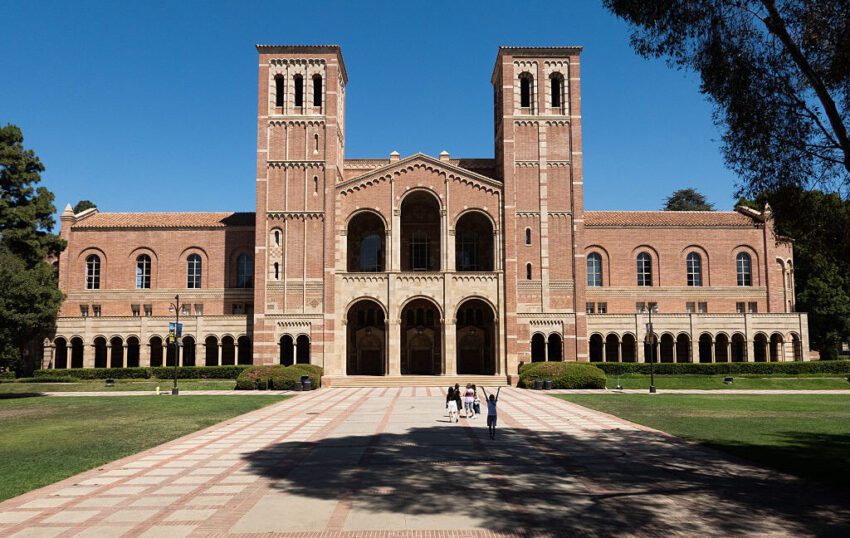
ucla faculty gets big win in suit A recent ruling by a US District Court has provided a significant legal victory for faculty members at UCLA and other schools within the University of California system, blocking attempts by the Trump administration to cut federal funding.
ucla faculty gets big win in suit
Background of the Case
The legal battle began when faculty groups at UCLA and other University of California campuses filed a lawsuit against the Trump administration. This lawsuit was initiated in response to the administration’s aggressive tactics aimed at altering university policies and instructional methods. The administration had threatened to withdraw federal funding unless the universities complied with certain demands, which many faculty members viewed as an infringement on academic freedom and First Amendment rights.
The Trump administration’s approach has been characterized by a systematic strategy: leveraging accusations of antisemitism to justify funding cuts. This tactic was seen as a means to coerce universities into making significant changes to their curricula and management practices. The implications of such actions are far-reaching, as they not only threaten the financial stability of these institutions but also challenge the core principles of academic independence.
The Court’s Ruling
On Friday, the US District Court issued a preliminary injunction that effectively blocks the federal government from cutting funding to UCLA and other University of California schools. This ruling is particularly noteworthy as it highlights the court’s recognition of the legal deficiencies in the Trump administration’s actions. The court found that the administration’s plan was not only flawed but also illegal, violating established procedures for funding cuts and infringing upon the First Amendment rights of faculty members.
Legal Grounds for the Injunction
The court’s decision was based on several key legal principles. First, it emphasized that the administration’s use of antisemitism allegations as a pretext for funding cuts was unfounded and lacked substantive evidence. The court noted that such accusations were often employed to create a narrative that justified punitive measures against universities, thereby undermining the integrity of academic discourse.
Furthermore, the ruling underscored the importance of adhering to legal procedures when making funding decisions. The court found that the Trump administration had failed to follow the necessary protocols, which are designed to protect institutions from arbitrary actions that could jeopardize their operations. This failure to comply with legal standards was a critical factor in the court’s decision to issue the injunction.
Implications for the University of California System
The court’s ruling has significant implications for the entire University of California system, which comprises ten campuses and serves over 280,000 students. By blocking the funding cuts, the court has provided a reprieve for these institutions, allowing them to continue their research and educational missions without the looming threat of financial instability.
Moreover, the ruling sets a precedent for other universities across the country that may face similar challenges from the federal government. It serves as a clear message that attempts to manipulate funding as a means of enforcing compliance with political agendas will not be tolerated. This legal victory empowers universities to stand firm against external pressures that seek to undermine their academic integrity.
Reactions from Stakeholders
The response to the court’s ruling has been overwhelmingly positive among faculty members and academic leaders. Many have expressed relief and gratitude for the court’s recognition of the importance of academic freedom. Faculty representatives from UCLA and other campuses have stated that the ruling reaffirms their commitment to providing a diverse and inclusive educational environment, free from political interference.
University administrators have also welcomed the decision, viewing it as a validation of their efforts to protect the autonomy of their institutions. They have emphasized the need for universities to remain independent from political pressures, allowing them to focus on their primary mission: educating students and conducting research that benefits society.
Broader Context of University Funding and Political Influence
The legal battle at UCLA is part of a larger trend in which universities across the United States have faced increasing scrutiny and pressure from political entities. Over the past few years, there has been a growing concern about the politicization of higher education, with various administrations attempting to influence academic policies and curricula.
This trend raises important questions about the role of government in education and the extent to which political agendas should shape academic institutions. Critics argue that such interference undermines the foundational principles of academic freedom and intellectual inquiry, which are essential for fostering innovation and critical thinking.
Future Challenges for Universities
While the court’s ruling is a significant victory for UCLA and the University of California system, it does not eliminate the challenges that universities may face in the future. The political landscape continues to evolve, and universities must remain vigilant against potential threats to their autonomy.
Additionally, the ruling may prompt further legal battles as the Trump administration or subsequent administrations may seek to challenge or circumvent the decision. Universities will need to be prepared to defend their rights and maintain their independence in the face of ongoing political pressures.
Conclusion
The preliminary injunction issued by the US District Court marks a pivotal moment in the ongoing struggle for academic freedom and institutional autonomy within the University of California system. By blocking the Trump administration’s attempts to cut federal funding, the court has not only safeguarded the financial stability of these institutions but has also reinforced the principles of free speech and academic independence.
As universities navigate the complexities of political influence and funding, the ruling serves as a reminder of the importance of legal protections for academic institutions. The outcome of this case may have lasting implications for the relationship between higher education and government, shaping the future of academic freedom in the United States.
Source: Original report
Was this helpful?
Last Modified: November 18, 2025 at 4:37 am
2 views















